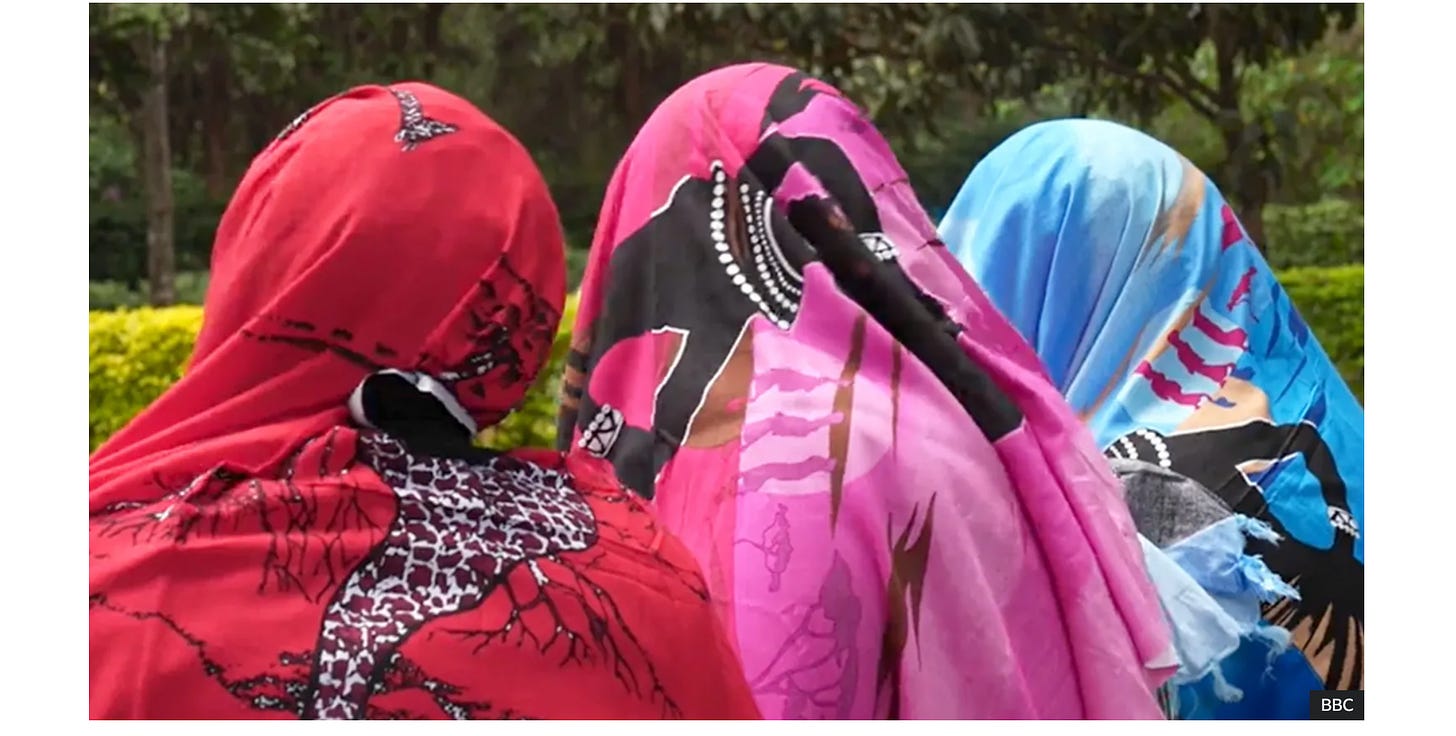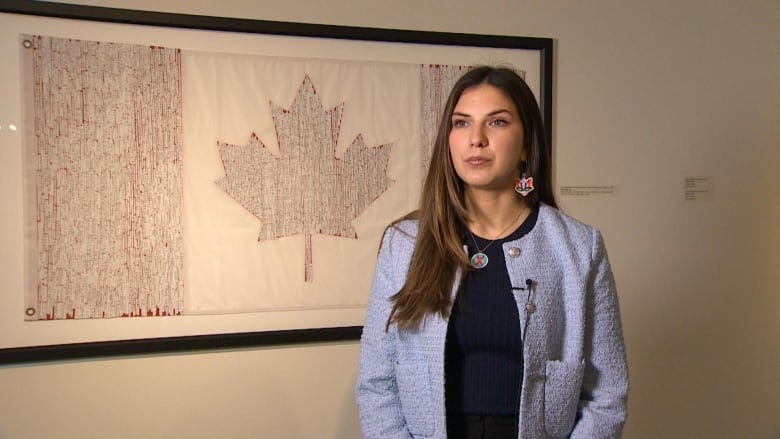Global Roundup: Kenya Women HIV & Forced Sterilisations, Mexico Women Delivery Drivers, Hong Kong’s Largest LGBTQ Fest, Indigenous Women Exhibit, Queer & Muslim Poetry Collection
Curated by FG Contributor Samiha Hossain
Four women living with HIV in Kenya have each been awarded $20,000 (£16,000) in damages for being sterilised without their informed consent. The women fought a nine-year legal battle – and their names have been changed to protect their identities, which were not revealed during the case at the High Court.
The procedure is called a bilateral tubal ligation (BTL) – when a woman's fallopian tubes are cut, tied, burned, clipped or partly removed, closing them and preventing future pregnancies. After giving birth, Penda, who is HIV-positive, says she was told to exclusively use formula milk. She says she was assured she was entitled to get free food for herself and the babies, but only if she showed proof that she was using family planning, which she said she found shocking. To help Penda obtain this proof, the hospital nutritionist referred her to a community health worker who told her to report to a clinic where personnel from Marie Stopes, Kenya's largest and most-specialised sexual reproductive health organisation, ran a family planning programme. There, Penda was given a form, which she signed, to have a BTL. As she cannot read, she says she did not know she had given her consent to be sterilised.
Neema related a similar experience at the Pumwani, which is Kenya's largest public maternity hospital. She says she was told by a nutritionist there that if she did not agree to undergo a BTL after giving birth, she would not qualify to receive portions of cooking oil, porridge and maize-meal flour, and that her maternity health bill would not be paid.
I didn't know what it meant. I thought it was ordinary family planning. If they had explained the procedure properly to me, I wouldn't have signed that paper. -Neema
It is because health professionals did not explicitly explain what these women had agreed to that they won their case. The High Court of Kenya ruled in September that this use of BTL without informed consent was a violation of the women's fundamental rights, including the right to establish a family. The women say their case was not just about compensation. They say the High Court judgment has validated their demand for justice. Their lawyer Nyokabi Njogu adds that the women just wanted an acknowledgement that this happened and don't want women who have suffered like them to continue in that suffering.
Food delivery worker Berline Augustin, who is originally from Hiait, had chlorine thrown at her by a fellow driver. Photograph: Bex Griffin/The Guardian
Berline Augustin, a food delivery driver originally from Haiti, was waiting to get an order, when a fellow repartidor pulled up alongside and threw chlorine at her. Augustin, 23, has no doubts why this violent attack happened – it was another example of the misogynistic aggression that women delivery drivers, especially non-Mexicans, face every day from colleagues, customers and the restaurant staff from whom they collect the food. The man is part of a group of fellow drivers who often heckle her and other women with the claims that they get more work, and tips, than them. Augustin says she is regularly subjected to racist remarks from the male repartidors, while some ask how much sex would cost. She rarely responds and did not consider reporting her attacker because she believed nothing would be done. She is also cognisant of her foreign national status.
To find more avenues for support, this year Augustin joined the National Union of App Workers (Unta), which represents workers for four major food delivery firms, and other companies, in Mexico. The union campaigns to regularise the status of its members as workers, which would see them obtain basic employment rights, and to defend women workers. Last year, reform proposals backed by Unta that would have classified app workers as employees hit a brick wall, which condemned half a million workers, a tenth of them women, to continued insecurity – with no support if they get hurt in an accident or become pregnant.
Shaira Garduño, the gender secretary at Unta, recently opened the union’s first punto naranja – a place where women delivery drivers can rest and replenish during shifts, charge their devices, use the toilet and meet other drivers. Crucially, it is also a place where workers can seek help from the union in the event of harassment, or worse. The union is calling on the delivery app companies to follow its lead and set up monitored hubs across the city where women drivers can wait for orders free from harassment.
In the absence of truly pro-women initiatives from the government and the platforms, the punto naranja sends the message that positive actions can easily be taken. -Kruskaya Hidalgo, union organiser at the Solidarity Center
Pink Dot Hong Kong 2023 was held at Art Park in West Kowloon Cultural District. Photo: Sun Yeung
Hong Kong’s largest LGBTQ carnival last weekend saw thousands of people flocking to it, dressed in pink. The event was held outdoors for the first time in five years and organisers said the recent Gay Games have drummed up support for the community.
All public speeches at the Pink Dot HK 2023 carnival, however, were cancelled after a request by police to end the event at the West Kowloon Cultural District an hour earlier at 8pm due to crowd control concerns over a nearby fireworks show. Carnival co-organiser Brian Leung Siu-fai said he acknowledged that police resources were being spread thin with the district council election that coincided with the fireworks event, which posed challenges for the force in case any conflicts arose during the annual carnival.
Themed “Love Out Loud”, this year’s carnival hosted more than 70 stores and community booths, including arts and crafts and pet adoption, and featured performances by local singers and drag queens on the main stage. Among the attendees was Hong Kong Gay Games co-chair Alan Lang, who said he was amazed by the changes in how the city had become more positive and upbeat towards the community after last month’s Games.
It is great to see the LGBTQ community thriving again after it came together for the nine-day Games, and then again here today at Pink Dot. -Alan Lang
Standing in front of one of her own pieces, called White Flag, Emma Hassencahl-Perley says she's excited about her new role at the Beaverbrook Art Gallery. (Pat Richard/ CBC)
Emma Hassencahl-Perley wants to showcase Indigenous feminism and female political voices through curated art. That's the idea behind wesuwe-tpelomosu, an exhibition organized by the Beaverbrook Art Gallery in Fredericton, Canada, in collaboration with the work of the renowned Indigenous artists.
I wanted to show that women had agency before contact, and they continue to have agency in their families and communities. -Emma Hassencahl-Perley
Hassencahl-Perley started working at the Beaverbrook Art Gallery in 2018 after she was hired as a curator for the New Brunswick Art Bank's 50th anniversary. She stayed on and worked at the gallery as a curatorial intern until recently, when she transitioned to become the newly appointed curator of Indigenous art. Hassencahl-Perley, a visual artist in her own right, is Wolastoqiyik from Neqotkuk First Nation, also known as Tobique, in western New Brunswick. She also lectures on Indigenous art history at the Wabanaki Visual Arts program at the New Brunswick College of Craft and Design in Fredericton.
Wesuwe-tpelomosu, the name of the current exhibition at the gallery, loosely translates to mean self-determination. It also can mean "returning to a former condition in being responsible for oneself," Hassencahl-Perley said. It aims to examine modern matriarchy through a sample of the history and life of Indigenous women's leadership and activism within their families and communities. The exhibit includes 10 Indigenous artists from across the country.
There is a growing hunger for knowledge, and we have to figure out ways to facilitate that to the public in ways that are genuine and respectful. -Emma Hassencahl-Perley
Poet, cultural critic and multidisciplinary artist Fariha Róisín (pronounced 'roh-zhin') has written a powerful collection of poems in "Survival Takes a Wild Imagination," her second book of poetry. In it, she wrestles with abuse, sexuality, generational trauma, and self-acceptance. Róisín was born in Canada into an immigrant family from Bangladesh, and grew up in Australia. She now lives in Los Angeles.
In 2016, her essay "How I Learned to Accept My Queerness as a Muslim Woman," published in "Teen Vogue," made quite an impact. In the article, she writes, "Poetry and art about love between two men were seen in the Muslim world as natural, or even normal. Even the poems by perhaps Islam's most famous poet, Rumi, talk about his love for his best friend Shams of Tabriz. The love between them is almost hagiographic."
Fariha Róisín says to her it feels quite normal today to be queer and to be Muslim, even though there is a great deal of socialization against being different. There is a very strong queer Muslim community. To be sure, Róisín feels her love for God and Islam and the Prophet have deepened as she has accepted herself.
I don't think I ever realized I was gay, or bisexual, or queer, or any of these things. I always just felt like me, a teen. -Fariha Róisín
Fariha Róisín finds herself asking many questions, such as why, after having seemingly faded, is misogyny now rampant and becoming more so all over the world? Who is family? And how to love a mother who never really loved? Motherhood was only an ego endeavor for her. How does one mend the infinite wrongs of the past to build a world of kindness and freedom?
In "This Is for Everyone Who Had to Make a Family out of Themselves," her lines provide hope for the growing percentage of us who must create our own families.
There is a song
trapped in each
vertebra.
I'm not alone,
but I've felt the
loss of
empty holidays.
-Fariha Róisín
Samiha Hossain (she/her) is an aspiring urban planner studying at Toronto Metropolitan University. Throughout the years, she has worked in nonprofits with survivors of sexual violence and youth. Samiha firmly believes in the power of connecting with people and listening to their stories to create solidarity and heal as a community. She loves learning about the diverse forms of feminist resistance around the world.







